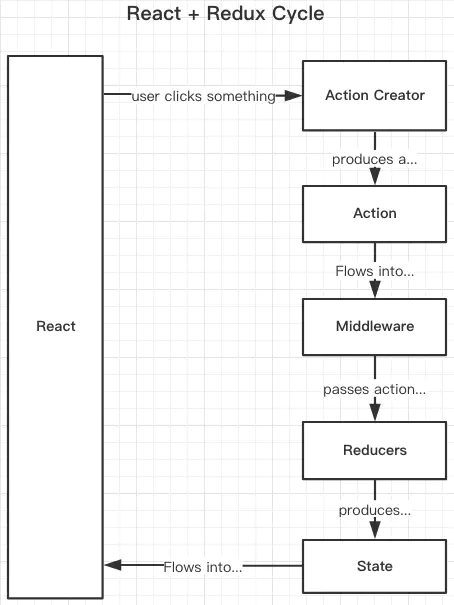thunk
"thunk" 是什么?
单词“thunk”是一个编程术语,意思是“一段做延迟工作的代码”。不需要现在执行一些逻辑,我们可以编写一个函数体或代码,用于以后执行这些工作。
特别是对于 Redux 来说,“thunks”是一种编写带有内部逻辑的函数的模式,它可以与 Redux 存储的调度和 getState 方法交互。
使用 thunks 需要将 Redux -thunk 中间件作为配置的一部分添加到 Redux 存储中。
Thunks 是在 Redux 应用程序中编写异步逻辑的标准方法,通常用于获取数据。但是,它们可以用于各种任务,并且可以包含同步和异步逻辑。
如何使用
thunk 函数是接受两个参数的函数:Redux store 分派方法和 Redux store getState 方法。应用程序代码不会直接调用 Thunk 函数。相反,它们被传递给 store.dispatch():
const thunkFunction = (dispatch, getState) => {
// logic here that can dispatch actions or read state
}
store.dispatch(thunkFunction)
一个 thunk 函数可以包含任何逻辑,同步或异步,并且可以在任何时候调用 dispatch 或 getState。 Redux 代码通常使用动作创建者来生成动作对象以进行分派,而不是手工编写动作对象,我们通常使用 thunk 动作创建者来生成被分派的 thunk 函数,这与 Redux 代码通常使用动作创建者来生成动作对象的方式相同。一个 thunk 动作创建者是一个函数,它可能有一些参数,并返回一个新的 thunk 函数。重击通常会关闭传递给动作创建者的任何参数,所以它们可以在逻辑中使用:
// fetchTodoById is the "thunk action creator"
export function fetchTodoById(todoId) {
// fetchTodoByIdThunk is the "thunk function"
return async function fetchTodoByIdThunk(dispatch, getState) {
const response = await client.get(`/fakeApi/todo/${todoId}`)
dispatch(todosLoaded(response.todos))
}
}
Thunk 函数和动作创建者可以使用 function 关键字或箭头函数来编写——这里没有什么有意义的区别。同样的 fetchTodoById thunk 也可以用箭头函数来写,像这样:
export const fetchTodoById = todoId => async dispatch => {
const response = await client.get(`/fakeApi/todo/${todoId}`)
dispatch(todosLoaded(response.todos))
}
在这两种情况下,thunk 都是通过调用动作创建者来发送的,与你发送任何其他 Redux 动作的方式相同:
function TodoComponent({ todoId }) {
const dispatch = useDispatch()
const onFetchClicked = () => {
// Calls the thunk action creator, and passes the thunk function to dispatch
dispatch(fetchTodoById(todoId))
}
}
使用场景
由于 thunks 是一种通用工具,可以包含任意逻辑,因此可以用于各种各样的目的。最常见的用例有:
- 将复杂的逻辑移出组件
- 发出异步请求或其他异步逻辑
- 编写需要在一行或一段时间内调度多个操作的逻辑
- 编写需要访问的逻辑在
getState中做出决定或包含其他状态值
源码逻辑
function createThunkMiddleware(extraArgument) {
const middleware =
({ dispatch, getState }) =>
next =>
action => {
// The thunk middleware looks for any functions that were passed to `store.dispatch`.
// If this "action" is really a function, call it and return the result.
if (typeof action === 'function') {
// Inject the store's `dispatch` and `getState` methods, as well as any "extra arg"
return action(dispatch, getState, extraArgument)
}
// Otherwise, pass the action down the middleware chain as usual
return next(action)
}
return middleware
}
function createThunkMiddleware(extraArgument) {
// ThunkMiddleware
return ({ dispatch, getState }: <storeAPI>) => {
// wrapDispatch
next =>
// handleAction
action => {
if (typeof action === 'function') {
// Inject the store's `dispatch` and `getState` methods, as well as any "extra arg"
return action(dispatch, getState, extraArgument)
}
// Otherwise, pass the action down the middleware chain as usual
return next(action)
}
}
}
